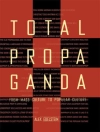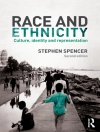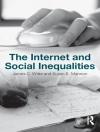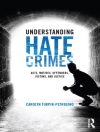An unprecedented look at college women′s risks of and experiences with sexual victimization
Unsafe in the Ivory Tower examines the nature and dimensions of a salient social problem—the sexual victimization of female college students today, and how women respond when they are, in fact, sexually victimized. The authors discuss the research that scholars have conducted to illuminate the origins and extent of this controversial issue as well as what can be done to prevent it. Students and other interested readers learn about the nature of victimization while simultaneously gaining an understanding of the ways in which criminologists, victimologists, and social scientists conduct research that informs theory and policy debates.
Key Features
- Provides detailed information about sexual victimization on college campuses today
- Introduces broad lessons about the interactions of ideology, science and methodology, and public policy
- Integrates current data, research, and theory, based on the authors′ national studies of more than 8, 000 randomly selected female college students
Intended Audience
This supplemental text is ideal for courses such as Sex Crimes, Violence and Abuse, Victimology, Gender and Crime, Sociology of Violence, Sociology of Women, and the Sociology of Sex and Gender in departments of criminology, criminal justice, sociology, and women′s studies. It is also useful for those involved in studying or creating public policy related to this issue and for those interested in sexual victimization on campuses generally.
قائمة المحتويات
1. The Discovery of Sexual Victimization
Beyond Real Rape
Sexual Victimization in Context
The Hidden Figure of Rape
Specially Designed Victimization Surveys
Koss’s Sexual Experiences Survey
One in Four: Publicizing the Rape Epidemic
Two Critiques
What’s Ahead
2. Beyond the Culture Wars: The Measurement of Sexual Victimization
The National Crime Victimization Survey
How the NCVS Measures Victimization
The First Step in Measuring Sexual Victimization: The NCVS Screen Questions
The Second Step in Measuring Sexual Victimization: The NCVS Incident Report
Measuring Sexual Victimization: The Next Generation
The National Women’s Study
The National Violence Against Women Survey
The National College Women’s Sexual Victimization Study
Revisiting the Koss-Gilbert Debate
Comparing Two Studies
Conclusion
3. The Risk of Rape: Unsafe in the Ivory Tower?
Coming to College as a Rape Victim
Rape During the College Years: Koss Revisited
The National College Women’s Sexual Victimization Study
Is College a Risk Factor?
Forms of Rape
The Role of Drugs and Alcohol
Conclusion
4. Beyond Rape: The Pervasiveness of Sexual Victimization
Moving Beyond the Study of Rape
Categorizing Sexual Victimization
Sexual Coercion
Unwanted Sexual Contact
Non-Contact Sexual Abuse
Conclusion
5. It Happened Again: Sexual Revictimization
Crime Revictimization
Sexual Revictimization
Sexual Revictimization Among College Women: The NCWSV Study
Why Does Sexual Revictimization Occur?
Findings from the NCWSV Study
Conclusion
6. Victim Secrets: Acknowledging and Reporting Sexual Victimization
Acknowledging Victimization
What Do Unacknowledged Victims Call It?
Consequences of Acknowledgement
Factors Related to Acknowledgement
Reporting Sexual Victimization to the Police
The Importance of Reporting
Why Don’t College Women Report Sexual Victimization?
Factors That Influence Reporting
Reporting to Other People: Telling Friends
Conclusion
7. Being Pursued: The Stalking of Female Students
Opportunities for Stalking
Research on the Extent of Stalking
Measuring Stalking in the NCWSV Study
The Extent of Stalking
The Nature of Stalking
Who Is At Risk of Being Stalked?
How Do Victims React?
Conclusion
8. Creating Safe Havens: Preventing Sexual Victimization
Two Themes
Three Approaches for Preventing Victimization
Opportunity-Reduction Approach: Situational Crime Prevention
Preventing Stalking
Conclusion
عن المؤلف
Francis T. Cullen is Distinguished Research Professor Emeritus and Senior Research Associate in the School of Criminal Justice at the University of Cincinnati, where he also holds a joint appointment in sociology. He received a Ph.D. (1979) in sociology and education from Columbia University. Professor Cullen has published more than 500 works in the areas of criminological theory, corrections, white-collar crime, public opinion, sexual victimization, and the criminology of Donald Trump. He is author of Rethinking Crime and Deviance Theory: The Emergence of a Structuring Tradition and is coauthor of Reaffirming Rehabilitation, Correctional Theory: Context and Consequences, Environmental Corrections: A New Paradigm for Supervising Offenders in the Community, Criminology, Communities and Crime: An Enduring American Challenge, Corporate Crime Under Attack: The Ford Pinto Case and Beyond, Combating Corporate Crime: Local Prosecutors at Work, Unsafe in the Ivory Tower: The Sexual Victimization of College Women, and Confronting School Violence: A Synthesis of Six Decades of Research. He also is coeditor of Criminological Theory: Past to Present—Essential Readings, Taking Stock: The Status of Criminological Theory, The Origins of American Criminology, Encyclopedia of Criminological Theory, The Oxford Handbook of Criminological Theory, Challenging Criminological Theory: The Legacy of Ruth Rosner Kornhauser, Sisters in Crime Revisited: Bringing Gender Into Criminology, Delinquency and Drift Revisited: The Criminology of David Matza and Beyond, Deterrence, Choice, and Crime: Contemporary Perspectives, The Oxford Handbook of White-Collar Crime, The American Prison: Imagining a Different Future, and Crime and Victimization in the Trump Era. Professor Cullen is a Past President of the American Society of Criminology and of the Academy of Criminal Justice Sciences. In 2010, he received the ASC Edwin H. Sutherland Award. In 2013, he was honored by his alma mater, Bridgewater State University, with a Doctorate in Public Service. He was selected as the Winner of the 2022 Stockholm Prize in Criminology.












